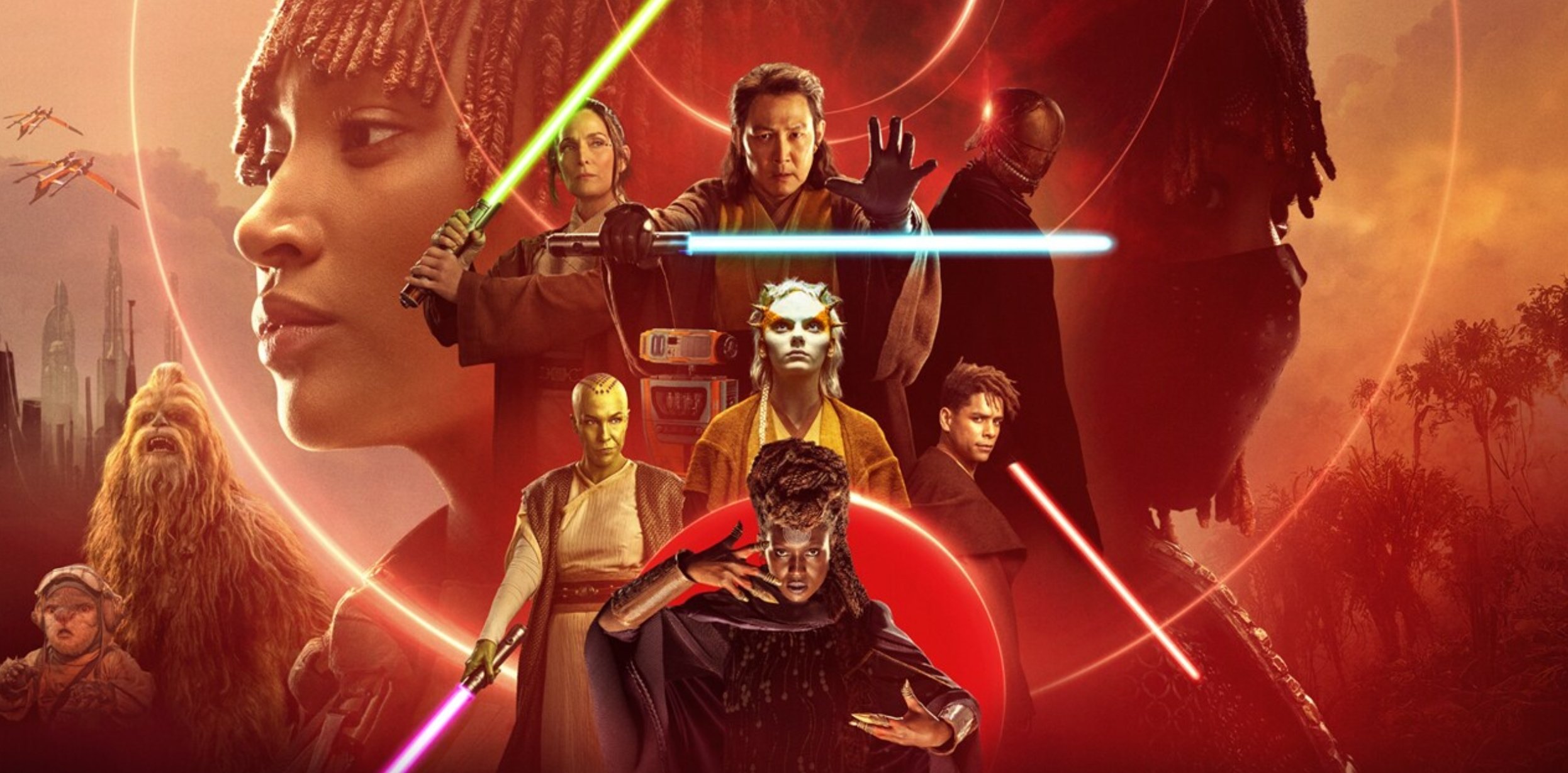‘Kingdom of the Planet of the Apes’ Review: A Worthy and Thoughtful Continuation of the Franchise

Noa (played by Owen Teague) in 20th Century Studios’ KINGDOM OF THE PLANET OF THE APES. Photo courtesy of 20th Century Studios. © 2024 20th Century Studios. All Rights Reserved.
It was 20-ish minutes into the very slow-paced first act of Wes Ball’s Kingdom of the Planet of the Apes that the film finally gave a story justification for its existence. Up until that point we’d witnessed Noa (Owen Teague in a career-defining role) and his two friends build up some solid character work, as we got to know his dreams and also insecurities, his ambitions and also some of his weaknesses. Yet the film was struggling to find a reason for continuing a franchise without the charismatic lead of the last three films. That was until the brute and evil Sylva (Eka Darville) proclaimed, before bringing his mighty army of horse-riding apes to Noa’s village: “For Caesar”.
The legacy of Caesar, along with the quality of the last trilogy by directors Rupert Wyatt and Matt Reeves, is a shadow cast all over this movie, and writer Josh Friedman found the perfect way to use it to their advantage. Kingdom of the Planet of the Apes doesn’t try to compete or re-do the last films, but instead faces the question that fueled the narrative desire for this movie head-on: What happened after Caesar died? Not the next week, or the next year, but many generations later.
There might be comparisons made to The Force Awakens, which also faced a similar query to justify the making of the movie. Instead of banging the nostalgia drum, though, Kingdom looks forward and focuses on what is happening now. Some apes like Noa haven’t even heard about Caesar, much like Daisy Ridley’s Rey hadn’t heard about Luke Skywalker. But Andy Serkis’ character from the previous installments has acquired a religious figure-like status among many other ape communities, which Friedman and Ball use to draw direct parallels to our world.
Though the film may be framed as a religious allegory, with the current state of things it’s almost equally as much sending a political message. Take Proximus Caesar (Kevin Durand), who, as the name suggests, hopes to become a new leader for the apes by following Caesar’s word — or, as Raka (Peter Macon as a lovable ally the main characters pick up along the way) suggests, twisting his words for his own benefit. “Apes. Together. Strong” continues to be repeated across generations, but while some interpret it as a call for empathy and community, others use it as a call for arms against humans. Proximus Caesar even uses it as an excuse to establish a kingdom where other ape clans are subjugated and enslaved.

(L-R): Noa (played by Owen Teague) and Raka (played by Peter Macon) in 20th Century Studios’ KINGDOM OF THE PLANET OF THE APES. Photo courtesy of 20th Century Studios. © 2024 20th Century Studios. All Rights Reserved.
One of the best parts about the last Apes trilogy was how it made us root for the apes and even against the humans — especially when they opposed Caesar. Kingdom of the Planet of the Apes, however, flips the roles once again and has the humans as the underdog. Throughout the film, we basically interact with two of them, and by far the best character in the film, ape or human, is Freya Allan‘s Mae, a girl who, unlike the evolved version of the humans apes now call Echo, can speak fluently and shows normal levels of intelligence. The other human is played by William H. Macy, and though he has an important thematic part to play in the story, I will not disclose much about it in the review.
A lot has happened since Caesar’s death, many decades ago, and the story is told in two parts. Noa and his community were witnesses to one side, and even continue to learn about the lengths to which apes are taking over the land in which they used to see the world behind bars. But there is another half of the story that Mae and the rest of the humans were privy to, and which we are only allowed to see glimpses of. Perhaps it’s because of Allan’s captivating performance, of perhaps it’s because the world was so well fleshed out elsewhere, that it feels like this side of the mythology got the shorter end of the stick.
Though Kingdom of the Planet of the Apes is set up as a self-contained story (a text à la Blade Runner at the top of the film even makes the case against rewatching the Andy Serkis-led movies), Ball and Friedman never shy away from hinting that they would like to revisit this world in future installments. Mae and Noa’s relationship is one of the most interesting in this franchise. Both are clear from the beginning that this is purely transactional, and they would betray each other if the opportunity came. However, the leverage each one has fluctuates constantly, making for a very interesting dynamic where in one scene Mae is in dire need of Noa’s help, but in the next scene, it will be the opposite way. And at all times, both of them are on the edge of breaking up the bond. Do the credits bring the beginning of a wonderful friendship or the end of one?
The film’s biggest sin is its self-indulgence with length. The first hour moves at an exhilaratingly slow rhythm and relies mostly on exposition to set up the world and its characters. Aside from a slightly anticlimactic introduction scene for Noa, and an expertly-handled hand-to-hand combat sequence, the first hour could have been trimmed down to speed up the flow and remove the feeling that it was dragging. Everything changes once Mae is introduced, and as she starts to be featured heavily in the narrative, the film picks up momentum and never looks back. Though Noa doesn’t feel that special at first, perhaps because we’re comparing him to our recollection of Caesar, watch out for him winning you over as the film continues and we get to live side by side with him.

Freya Allan as Nova in 20th Century Studios’ KINGDOM OF THE PLANET OF THE APES. Photo courtesy of 20th Century Studios. © 2024 20th Century Studios. All Rights Reserved.
The film has a lot to say about compassion and the meaning of humanity in a post-apocalyptic world, though it’s those political and religious themes regarding the legacy of Caesar that make it stand out inside a franchise that has been preoccupied with the former themes since its inception, more than 50 years ago. But Friedman’s writing is often reluctant to dive deep into some of the specific ideas that it touches upon, which at times feel like a job half-done, but other times feels like an attempt for the viewer to take home the questions it ponders and force them to take their own conclusions.
Much has been said over the years about the spectacular visual effects work that these movies include, and though the ape-on-ape scenes look jaw-droppingly good, I couldn’t help but have an uncanny valley feeling when an ape interacts with a human. Maybe that’s because there’s something in my brain that simply can’t process that visual information, but I don’t think that happened as much in Avatar: The Way of Water, for instance. In that same department, along with production design and cinematography, I must give props to everyone responsible for the way the film looks and the sets are designed. Though reminiscent of a live-action incarnation of The Last of Us: Part II, the vegetation-infested look of torn-down buildings had me salivating about what HBO will do with their own adaptation of a similar world.
Kingdom of the Planet of the Apes is currently in theaters worldwide.
Miguel Fernández is a Spanish student that has movies as his second passion in life. His favorite movie of all time is The Lord of the Rings, but he is also a huge Star Wars fan. However, fantasy movies are not his only cup of tea, as authors like Scorsese, Fincher, Kubrick or Hitchcock have been an obsession for him since he started to understand the language of filmmaking. He is that guy who will watch a black and white movie, just because it is in black and white.






